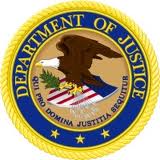Justice Dept., U.S. Patent Office say sales bans should be exception to the rule

The Justice Department and the U.S. Patent and Trademark Office have said that in court cases concerning standard-essential patents, granting sales bans should be rare and the exception to a common rule.

In a joint statement (.pdf) released late Tuesday, the DoJ and USPTO recommend that the U.S. International Trade Commission (ITC), which has the power to prevent the shipping of products to the United States, should consider the public interest before ordering such injunctions.
The holders of standard-essential patents -- inventions which have become "industry essential" and necessary components in many modern gadgets -- are required to offer licensing terms to competitors through fair, reasonable, and nondiscriminatory terms (FRAND). However, as competition mounts in the smartphone and tablet industry, we are beginning to see a surge in companies taking each other to court for allegedly infringing on these types of patents.
When these patents are infringed upon, companies often file requests for gadgets operating via the technology to be banned, therefore costing the infringing firm a fortune in lost earnings. Instead, the two agencies suggest other measures should be put in place, as sales bans can potentially hamper competition, innovation and development.
The statement reads:
"In an era where competition and consumer welfare thrive on interconnected, interoperable network platforms, the DOJ and USPTO urge the USITC to consider whether a patent holder has acknowledged voluntarily through a commitment to license its patents on FRAND terms that money damages, rather than injunctive or exclusionary relief, is the appropriate remedy for infringement.
The USITC, may conclude, after applying its public interest factors, that exclusion orders (sales injunctions) are inappropriate."
The DoJ and USPTO's recommendations echo that of the Federal Trade Commission (FTC), who argues that financial compensation should be offered instead of sales bans when these types of patents are infringed upon, except in very specific cases in order to keep competition strong.
Last week, after a long investigation, the FTC ruled that Google must change a number of its business practices. Among the FTC's orders is the requirement for the tech giant to stop using standard-essential patents acquired through its purchase of Motorola Mobility in order to hamper competition and dissuade competition, and instead offer them through FRAND terms.
In addition, the high-profile case of Apple v. Samsung has resulted in a number of sales bans being requested, mainly involving preventing the sale of Samsung products. Sales bans have also been present in other cases involving Android-powered devices, including alleged infringement of patents owned by Google's Motorola Mobility unit.
The ITC is currently reviewing the results of a preliminary ruling in September which said that Apple has not infringed patents owned by smartphone manufacturer Samsung when developing products including the iPhone and iPad. A decision is expected in February.